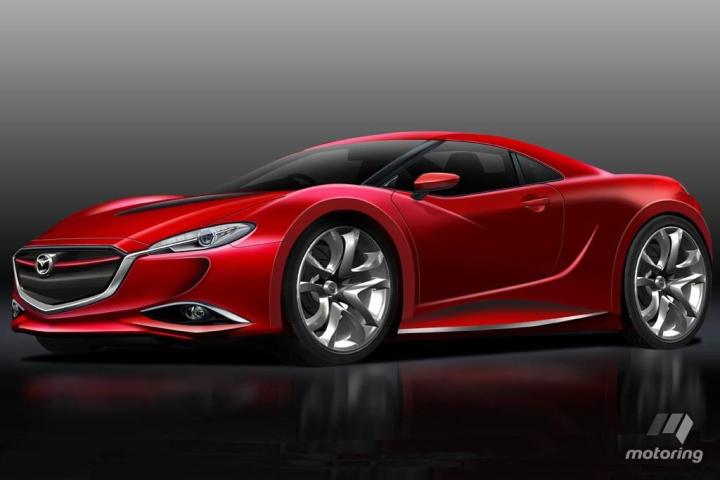
Motoring reports that Mazda is adding a twin-scroll turbocharger setup to the new RX, increasing output to a brawny 450 horsepower. Previous dispatches indicated the RX-7 would feature a naturally aspirated, 300-hp rotary unit, but apparently Mazda decided the RX’s revival deserved a little more vigor. The last FD used a 276-hp turbo 13B powerplant in top form.
Mazda is also ditching the prospective Miata-based platform and will revamp the retired RX-8 chassis instead. The RX-8 had more power and rigidity than the MX-5, so its stiffer framework is a better choice for the new drifter.
The Wankel-powered RX will likely embody the same “Kodo” design philosophy that roots the Mazda3, Mazda6, and Mazda CX-5. The “Soul of Motion” ideology sees a car as a cohesive, living creature that can emotionally connect with its driver, a la a horse and its rider.
The RX-7’s design rendering shows long, emotive lines that are almost Italian in feel, and look more contemporary and daring than its predecessor.
It’s slated for a May 2017 release, a date that celebrates the 50th anniversary of the Wankel-powered Mazda Cosmo. The Cosmo, which debuted in 1967, was the first production car to feature a rotary engine. Thus, the legendary Wankel was born.
Since then, the legendary oil burner has underpinned the RX-7, RX-8, Taiki Concept car, and several Mazda race cars. In fact, the Wankel is the only non-piston engine to ever win Le Mans.
Most recently, a Wankel engine was announced as a range extender for the upcoming Mazda2 plug-in hybrid. An extra 118 miles in a hatchback is great and all, but the RX-7 is what Wankels are meant for: high-revving, boosted bliss.
(Photo via Motoring)


